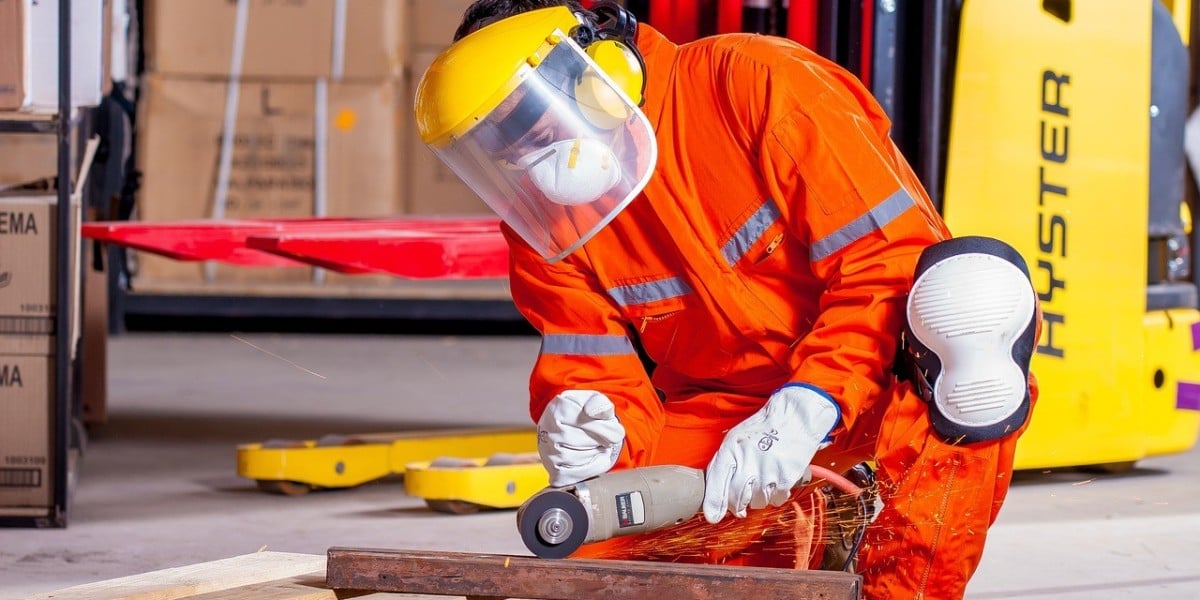The eyes have it. Or, rather, they need it when it comes to ensuring protection from potential harm in the professional world. But in a market filled with thousands of options, how does one go about choosing the appropriate safety eyewear for the job? What are the various elements to consider while selecting a pair of safety glasses that's just right for you?
Safety glasses are an essential piece of personal protective equipment (PPE), especially for individuals employed in industries where their eyes are exposed to potential harm. From construction workers to laboratory scientists, all need adequate eye protection to prevent any occupational hazards. In the following guide, we will focus on presenting an assortment of information, tips, and pointers that will ultimately help you to select the best and most suitable safety glasses for your job.
Here's a guide to help you choose the right safety glasses for your profession:
1. Identify Your Workplace Hazards:
Start by identifying the specific hazards you may encounter in your workplace. Different professions have different risks. Common hazards include flying debris, chemical splashes, UV radiation, and more.
2. Understand Safety Standards:
Familiarize yourself with the safety standards and regulations relevant to your profession. These standards dictate the minimum requirements for safety eyewear.
3. Types of Safety Glasses:
Safety glasses come in various types, each designed for specific hazards:
Safety Glasses: These provide basic eye protection against debris, dust, and minor impacts.
Goggles: Ideal for protection against chemical splashes, dust, and fine particles. Some are vented for airflow, while others are sealed for full protection.
Face Shields: Offer full-face protection from splashes, sparks, and high-impact hazards. Often used in welding and healthcare settings.
Safety Sunglasses: Designed to protect against UV radiation while also providing impact resistance. Suitable for outdoor work.
4. Lens Material:
Safety glasses lenses are made from various materials, including:
Polycarbonate: Lightweight and highly impact-resistant, suitable for most industrial applications.
Trivex: Similar to polycarbonate but with better optics and chemical resistance.
Glass: Provides excellent optical clarity but is heavier and less impact-resistant than polycarbonate.
5. Lens Coatings:
Consider lens coatings to enhance performance:
Anti-Scratch: Protects against scratches, extending the life of your safety glasses.
Anti-Fog: Prevents fogging, especially in environments with temperature variations.
UV Protection: Essential if you work outdoors or are exposed to UV radiation.
Polarized: Reduces glare, helpful for outdoor work with reflective surfaces.
6. Fit and Comfort:
Safety glasses should fit comfortably and securely. Look for adjustable nose bridges and temples. Some designs offer cushioning for added comfort during extended wear.
7. Ventilation:
Depending on your work environment, ventilation may be important. Goggles with vents can prevent fogging, while sealed goggles offer full protection against chemical exposure.
8. Prescription Safety Glasses:
If you wear prescription glasses, consider getting prescription safety glasses. They are custom-made to your prescription and offer the same protection as standard safety glasses.
9. Maintenance and Replacement:
Regularly inspect your safety glasses for damage. Replace them if you notice cracks, scratches, or other signs of wear. Proper maintenance ensures your eye protection remains effective.
10. Consult with Safety Experts:
If you're unsure which safety glasses are best for your profession, consult with safety experts or your employer's safety officer for guidance.
Knowing the Risks
Understanding the risks associated with your job helps in determining the type of safety glasses suited for you. Different professions present varied hazards, from sharp objects and extreme temperatures to chemical splashes and harmful radiation. For jobs primarily involving physical threats, impact-resistant glasses with polycarbonate lenses are ideal. On the other hand, occupations that expose the eye to intense light or laser sources, like welding, require glasses with UV protection.
Lens Type and Coating
Lens type and coating play a significant role in enhancing safety and comfort. For instance, anti-scratch coating prolongs lens life, while anti-fog coating ensures clear vision in diverse environments. Some lenses offer better protection against ultraviolet light, while others are designed to reduce eye fatigue caused by extended computer usage. Understanding the conditions of your workplace will assist in making this crucial choice.
Comfort and Fit
The comfort and fit of safety glasses are as crucial as their protective features. Ill-fitting glasses can be a distraction, contributing to workplace accidents. Prioritize comfort, adjustable features, and a secure fit when selecting a pair.
Industry Standards and Legal Requirements
The standards that safety glasses need to meet vary from one industry to another. Some standards are set by regulatory bodies like OSHA, ANSI, or the European CE. Knowledge of these guidelines is valuable and often compulsory in ensuring safety.
Cost vs. Quality
The cost of safety glasses can be tempting to scrimp on, but finding a balance between cost and quality is crucial. High-quality glasses might cost more initially, but they could save you from potential medical bills in the future.
Conclusion
Choosing the right safety glasses is more than just a matter of personal preference. It involves understanding your workplace risks, legal requirements, and the balance between cost and quality. It's about ensuring you are as protected and comfortable as possible. Remember, your eyes are irreplaceable - investing in protection for them shouldn't be seen as an option, but rather, a necessity. The luxury of sight is invaluable. Make sure you give it the protection it deserves, and select the best and most appropriate safety glasses for your job.



